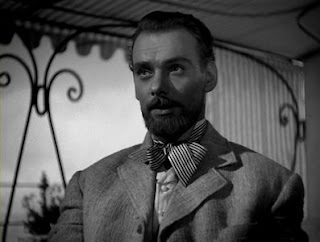Chekhov’s short stories can
be characterized by “character over plot.” That is to say, the plot originates from
the inner force of its characters, and the story line is never imposed for its
own sake. With that said, the character to focus on in this particular story, “The
Lady and the Dog,” is definitely Dmitri Gurov for it is he and his changing
attitudes toward Anna and himself that drive the plot. “The Lady with the Dog”
is a rather scandalous story of its time with obvious themes of relationships,
adultery, and love. Through a thorough analysis of Dmitri’s character, I want
to explore his take on the whole concept of a relationship and speculate on why
such a shift of viewpoint occurred on his part. How did the subject of his sexual
conquest turn into the love of his life? How did the adulterous affair turn
into his liberation? What is love, anyway? Chekhov, being Chekhov, does not
give an answer straight out. However, he gives hints and leaves the readers
room to interpret.
Dmitri, in the initial
part of the story, is drawn out as an unappealing chauvinistic player, hardly
winning any favors from us. He is bitter and cynical about women and the world
as a whole. We learn from the beginning that he is unhappily married, that he
is in his middle ages, and that he indulges in frequent adultery. He enjoys the
company of women but avoids getting into a deep relationship. “Every intimacy,
which at first so agreeably diversifies life and appears a light and charming
adventure, inevitably grows into a regular problem of extreme intricacy, and in
the long run the situation becomes unbearable.” It seems that our male
protagonist is afraid of getting into deep relationships and dealing with “love.”
He wants to keep things simple, which is why he takes up another opportunity to
enjoy a “swift, fleeting love affair” with the newcomer of Yalta. He addresses
her not as a human being but a label, such as “the lady with the dog” or “the
lady in the beret,” reinforcing Dmitri’s viewpoint of women being a temporary
plaything that does not need naming.
However, the journalistic,
dry prose of Chekhov turns poetic near the end of section I, giving a hint at how Dmitri comes to feel love for Anna. “They
walked and talked of the strange light on the sea: the water was of a soft warm,
lilac hue, and there was a golden streak from the moon upon it,” is very
poetic. In this paragraph, we learn that Dmitri studied to be an Opera singer
but works in the confined regulations of a bank. Dmitri probably feels trapped
in his life. It is also the first time we learn the woman by name, Anna
Sergeyevna. This hints at the origins of his love as this description describes
how both are living unhappy lives and Dmitri calls the “lady” by name. When
Dmitri goes back to the hotel, he thinks about her youth, her diffidence and
angularity, and her “slender delicate neck, her lovely grey eyes.” He is
attracted to her youth and frailty. However, he concludes that there is
something pathetic about her, and avoids facing his sprouting love for Anna.
The recurring image of
the sea reinforces the hint mentioned above. In the first mentioning of the
sea, Chekhov’s prose suddenly took a shift and it revealed their meaningless
lives. The sea comes up once again after Anna’s emotional outburst. Dmitri
takes her to the sea, and Dmitri’s reflections are revealed. “So it sounds now,
and it will sound as indifferently and monotonously when we are all no more…in
this constancy,…, there lies hid, perhaps, a pledge of our eternal salvation,
of the unceasing movement of life upon earth, the unceasing progress towards
perfection.” Through his thoughts, Dmitri’s hunger for something deeper in
life, some meaning in life, is shown. Maybe the lineup of affairs he had was
just an expression for a longing for intimacy. The sea also recurs when Dmitri
parts with Anna. After he ends the affair almost dispassionately, Gurov
astonishes himself by finding love. I believe that the sea, with its constancy
and sublimation, helps Gurov find meaning in his life and ultimately come in
terms with love. I don’t think Chekhov meant it as a direct trigger for Dmitri
to find love, but its recurring images of the sea is integrated with Chekhov’s
steady realization of love, and thus the importance of nature in Chekhov’s
works. The sea reminds Dmitri and the readers that man lives and dies in obscurity (compared to the sea) and to find " a pledge of eternal salvation." For Dmitri, this eternal salvation was love.
Thus, I think for Dmitri,
love is pretty selfish. He comes to terms with genuine love because he wants to
find meaning in life (reinforced by the sea) and because his age (shown through the images of grey) is telling him to settle on one woman. He resorts to what he thinks is “true”
love. However, there are some implications that his condescending air has not completely
gone. During both of Anna’s emotional outbursts, Dmitri is eating something – a
watermelon in the first and tea in the second. However, there are still
implications of a bright future, a happy ending, if you will. Ultimately
though, the relationship between a man and a woman can never be defined, thus
the ambiguous conclusion.
.jpg)





.jpg)